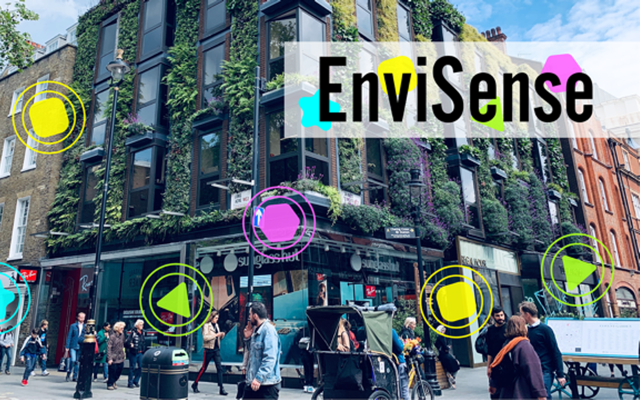
Project Details
- Consortium:
TU Wien, Institute of Visual Computing & Human-Centered Technology, Research Unit Artifact-based Computing and User Research
FH Campus Wien, study programme: Green Mobility, Department Social Work
FH Technikum Wien, Institute of Renewable Energy
Project Contact Information
- Website:
https://envisense.at/ -
Gerfried Mikusch, TU Wien
E-Mail
Abstract
In this project, best-practice research is conducted to elaborate the state of the art of technology-supported awareness building in climate change, quality of public spaces and personal mobility. The project shows which low-threshold artifacts (e.g., environmental sensors) are available, how these artifacts are used, and how the data collected by them is made available for societal use. This is done with regard to raising awareness among the general public as well as for administration and government. Central aspects in this project are best practices that use or collect parameters and measurements on personal mobility (CO2, particular matter) and on the quality of public spaces (e.g., loudness, heat, well-being) as well as the embedding of such artifacts and technologies into the daily routines of users.
Outcome Summary
The results and learnings of this project are based on extensive research on existing best practices and are complemented by insights from four expert interviews. The interviews were conducted with a founder of a local best practice project and three experts from public administration. This constellation brings Citizen Science and Participatory Sensing into the focus of the project as supporting and promising approaches for the participation of citizens in the collection of environmental data. The results and above all the learnings from this project are therefore strongly influenced by this.
The project team consists of Gerfried Mikusch (TU Wien, Artifact-based Computing and User Research, project leader), Hilda Tellioğlu (TU Wien, Artifact-based Computing and User Research), Andreas Petz (FH Campus Wien, Green Mobility), Elisabeth Steiner (FH Campus Wien, Department of Social Affairs) and Momir Tabakovic (FH Technikum Wien, Institute for Renewable Energies). This composition ensures an interdisciplinary approach to the project and covers all essential disciplines for answering the research questions posed. The project duration is nine months, and the project was carried out between February 2022 and October 2022.
The main results of the project are the identification of best practices in the above defined research and thematic area, as well as their categorization with regard to target groups, orientation and areas of application. The results of the expert interviews provide an insight into experiences and challenges in the establishment and operation of best practice projects, as well as into the expectations, orientations, and ways of thinking of the public administration, using the example of the City of Vienna, with regard to the participatory measurement of environmental data by citizens. Here, possible synergies between best practices and administrative units, but also challenges in the integration of Citizen Science approaches into administrative processes are highlighted. The results show clear potential for further research and cooperation between the project partners. For example, the findings from this project could be used as a basis for future cooperation between the participating educational institutions and best practice projects to create denser, participatory measurement networks.